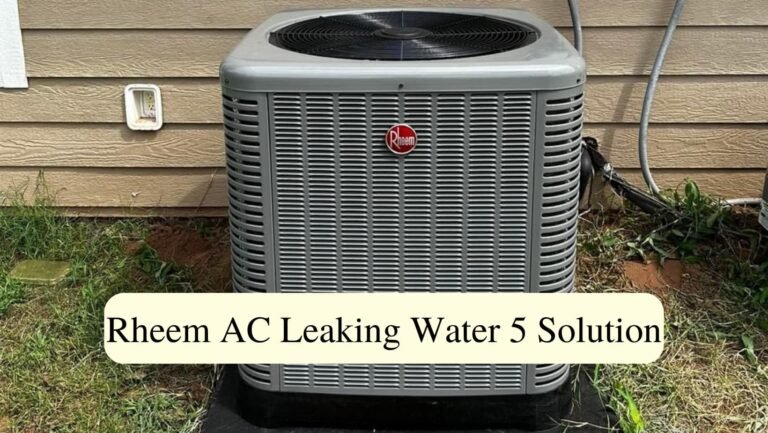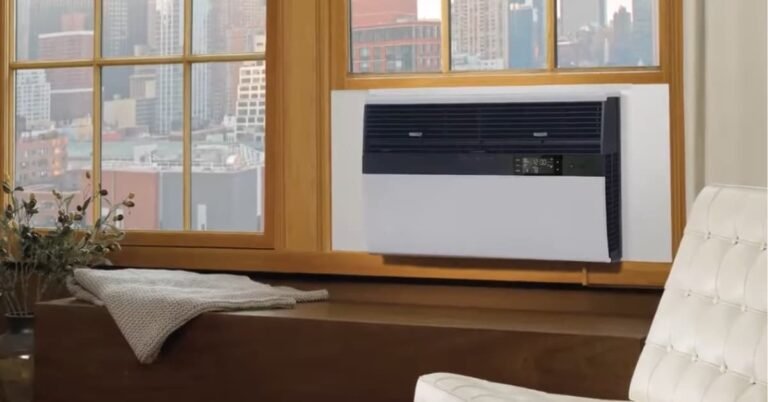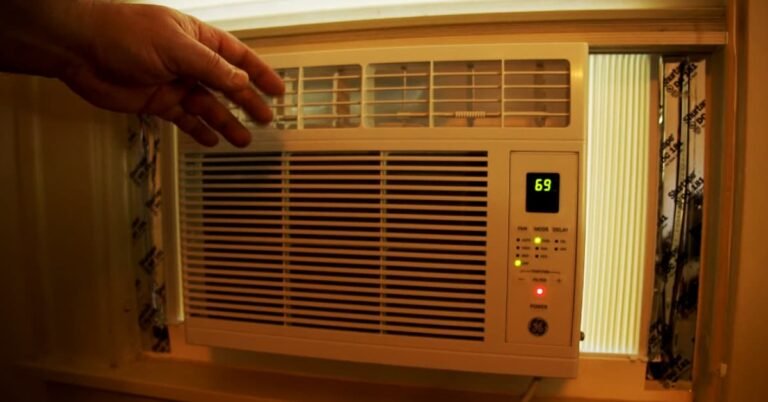How to Make Window Air Conditioner Quieter? Quick Guide
Reducing the noise produced by a window air conditioner is possible through several simple adjustments and maintenance tasks.
You can reduce operating noise by cleaning or replacing filters, ensuring the unit is properly installed and sealed, and placing vibration-absorbing pads underneath.
Further minimizing noise levels is possible by regularly lubricating moving parts and checking for loose components. Enjoy the benefits of a window air conditioner while creating a more comfortable environment.
Types of Noise From Window Air Conditioner Quieter
Different types of noise can come from a window air conditioner. Mechanical noise, vibration noise, and environmental noise are the main sources. Identifying these noises is the first step to reducing them. Each type requires different solutions. Understanding the sources helps you address the problem effectively.
Mechanical Noise
Mechanical noise comes from the internal parts of the air conditioner. The compressor, fan, and motor are common culprits. These parts can become noisy due to wear and tear. Regular maintenance can reduce mechanical noise. Identifying the specific part causing the noise is crucial for effective repairs.
Vibration Noise
Vibration noise occurs when parts of the air conditioner vibrate against each other. Vibrations can result from improperly installed units or unsecured components. This type of noise can be persistent and loud. Securing loose parts and ensuring proper installation can significantly reduce vibration noise.
Environmental Noise
Environmental noise includes external factors affecting the unit’s noise level. The location and installation of the air conditioner play a key role. If the unit is not properly mounted, it can generate more noise. Ensuring a secure installation and choosing a suitable location can minimize environmental noise.
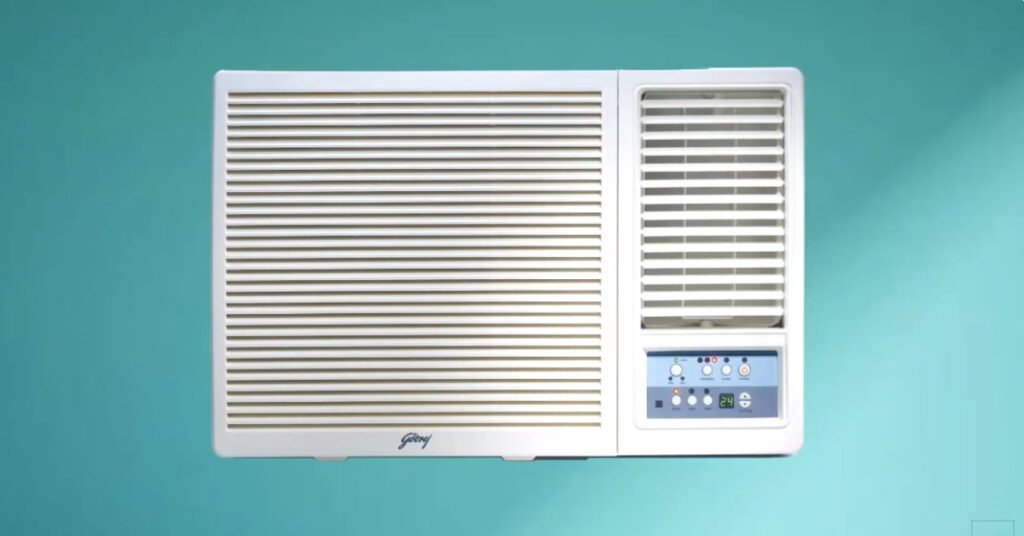
Steps To Make Window Air Conditioner Quieter
Simple solutions can significantly reduce air conditioner noise. Tightening loose parts is often an effective fix. Reducing vibrations with special pads can help. Regular cleaning and maintenance keep the unit running smoothly. These practical steps can make your air conditioner much quieter.
1. Tightening Loose Parts
Open the air conditioner cover and inspect for loose parts. Use a screwdriver to secure any loose screws or bolts. Loose parts are a common source of noise. Securing them can quickly resolve noise issues. This straightforward step is often highly effective.
2. Reducing Vibrations
Install vibration-absorbing pads under the air conditioner. These pads help absorb vibrations, reducing noise. Secure the unit with foam insulation to minimize movement. These measures can significantly reduce vibration noise. Making these changes can greatly improve your unit’s quietness.
3. Cleaning and Maintenance
Regular cleaning is essential for quiet operation. Clean the filters and coils monthly to remove dust and debris. A clean unit operates more efficiently and quietly. Regular maintenance prevents blockages and restricted airflow. Keeping the unit clean is crucial for noise reduction.
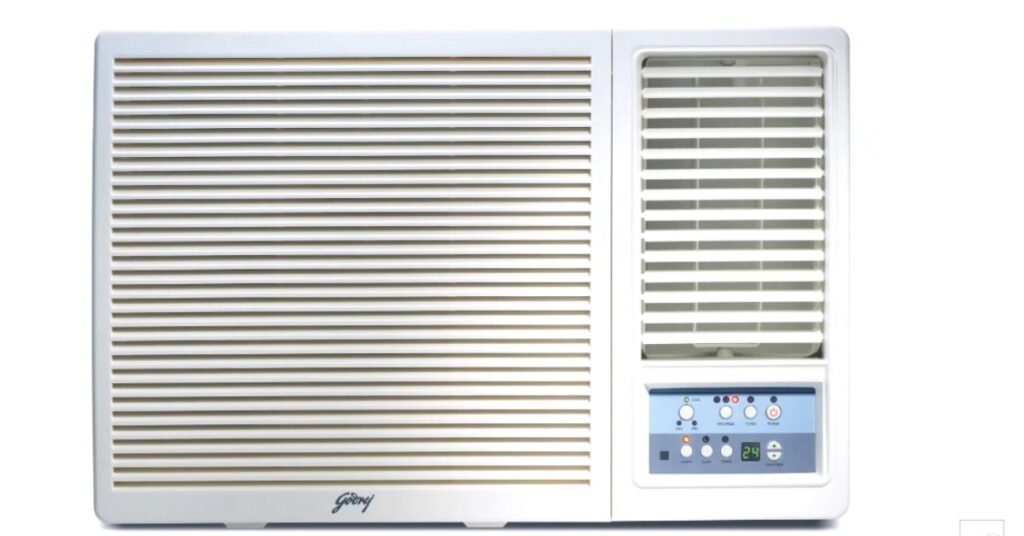
Advanced Noise Reduction Techniques
For persistent noise issues, advanced techniques may be needed. Soundproofing the area around the unit can help. Upgrading components to quieter ones can make a big difference. Professional modifications may also be necessary. These advanced solutions provide long-term noise reduction.
Soundproofing the Area
Consider soundproofing the area around your air conditioner. Install soundproof curtains or panels to block external noise. Use acoustic foam around the unit to absorb sound. These measures can create a quieter environment. Soundproofing is very effective in reducing noise.
Upgrading Components
Upgrade noisy components of your air conditioner. Replace loud fan blades with quieter ones. Install a quieter compressor or motor. These upgrades can significantly reduce noise levels. Investing in quieter components improves both performance and quietness.
Professional Modifications
Consult an HVAC professional for persistent noise problems. A professional can identify and fix issues you might not see. They can suggest custom solutions for your specific unit. Professional modifications provide long-term noise reduction. Expert help can be very beneficial.
Preventive Measures for Long-Term Quiet Operation
Preventive measures ensure your air conditioner remains quiet. Regular maintenance is crucial. Proper installation tips help keep the unit secure. Choosing the right unit can also make a big difference. These measures maintain a quiet, efficient air conditioner.
Regular Maintenance Schedule
Set up a consistent maintenance schedule for your air conditioner. Perform routine checks and cleaning to ensure all parts function correctly. Regular maintenance prevents noise issues from developing. Keeping a schedule is essential for long-term quiet operation.
Conclusion
Addressing air conditioner noise improves home comfort. Understanding noise sources and applying practical solutions are key. Regular maintenance, proper installation, and professional help when needed ensure a quiet unit. Implementing these strategies creates a more peaceful living space.

